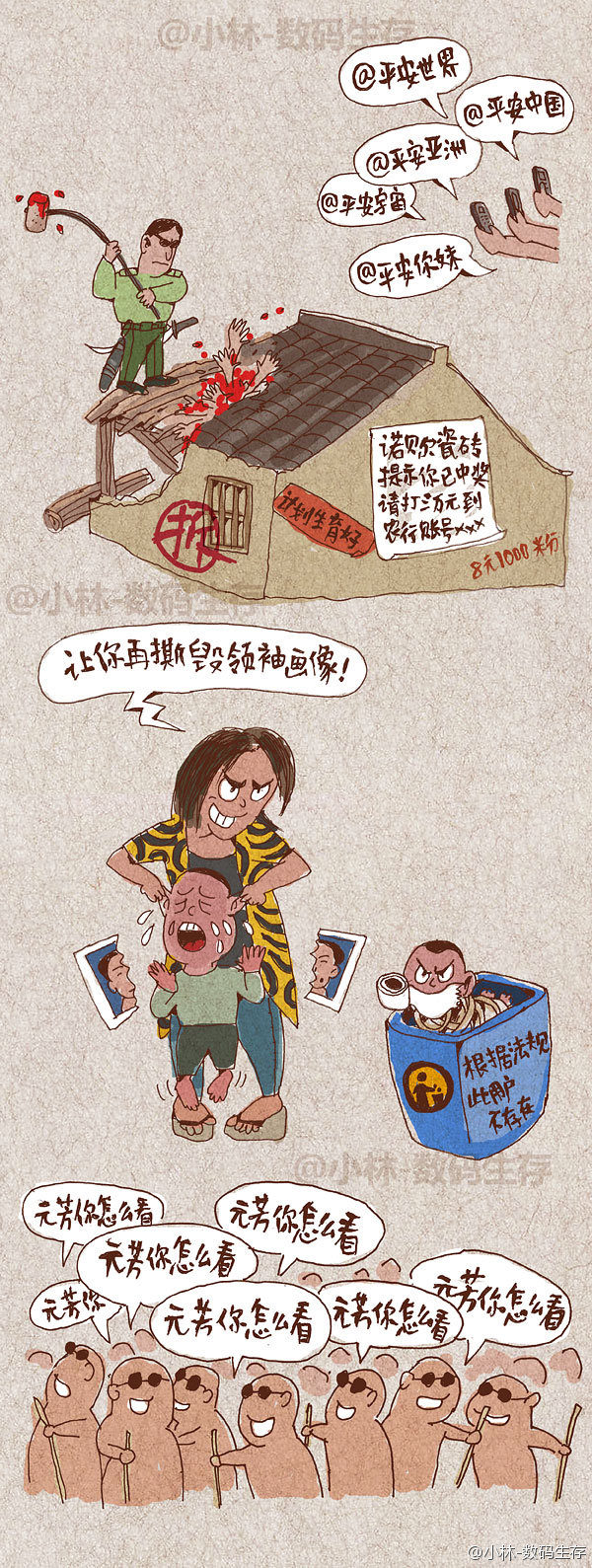From world politics to personal freedoms, this week’s cartoon selection runs the gamut of major recent events in China.

Below that violent scene, a tyrannical kindergarten teacher lifts up one of her students by the ears, barking, “Let’s see you tear up another leader’s portrait!” A Chinese factory supervisor will be deported from Cambodia for cutting up photos of the late Norodom Sihanouk, king until 2004. Another child is tied up and shut up in a garbage can that warns, “According to the laws and regulations, this user does not exist,” a reference to removing Weibo users who cross political lines. Lindihuan (@小林-数码生存) has little hope for Weibo to effect any change beyond these particular circumstances. The online public stumbles around blindly at the bottom, each person asking the other “What do you think, Watson?”
In two weeks, the world’s two largest economies will undergo two very different leadership transitions. In one, it will be a meticulously planned changing of the guard; in the other, a battle to the bitter end. In the eyes of Benevolent Brother (@仁哥时漫), China’s transition could hold surprises. A group of nine rats (the nine members of the Politburo Standing Committee?) argue as their leader shouts over them. They remain unaware of the mutinous group marching into their cave. Meanwhile, woodland creatures gather in awe outside a gated compound where a donkey and an elephant fight to the death.
The U.S.-China relationship is one of the most vital today, but do the two understand each other? Beijing frets that the U.S. “pivot to Asia” is really a pivot away from China, as America strengthens its partnerships with Burma, Thailand and other regional players. Add the scant discussion of China in this week’s final presidential debate and some will ask if these two major powers are even playing the same game of chess. In “Connect,” B. Kuang’s answer is that the two aren’t even playing the same type of chess.
So, what’s next for China after the reshuffle of the 18th Party Congress? Could reform be afoot? Marx, Lenin and Mao were conspicuously absent from several Chinese Communist Party statements this week. Mao Zedong Thought may even leave the Party constitution. And Xi Jinping may urge reform as future president. Then again, the world is always waiting for China to change. In Old Pinzi’s view, political reform is as slow as a snail, taking the stage in what could be a very long, drawn out performance.











